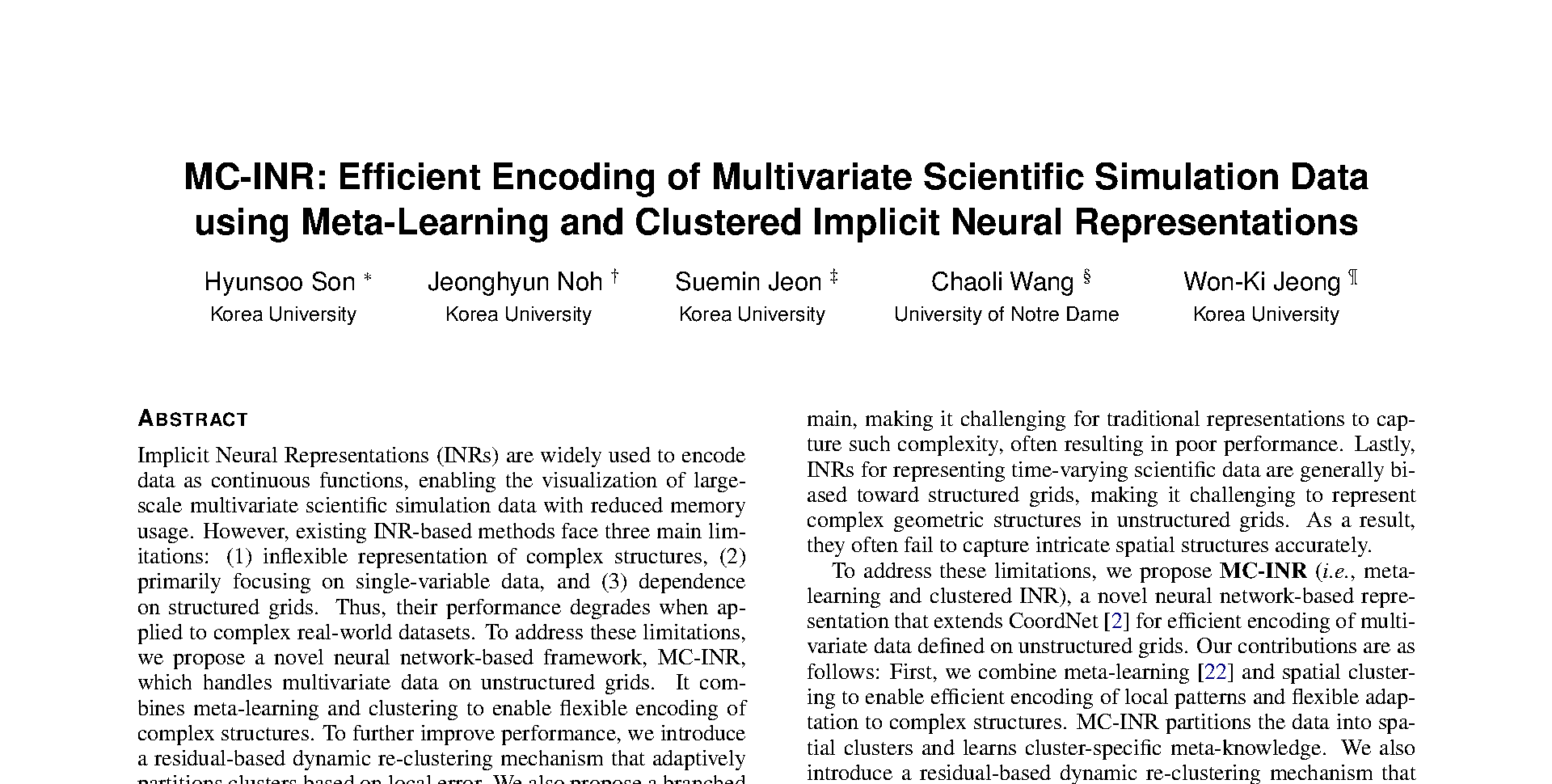MC-INR: Efficient Encoding of Multivariate Scientific Simulation Data using Meta-Learning and Clustered Implicit Neural Representations
Hyunsoo Son -
Jeonghyun Noh -
Suemin Jeon -
Chaoli Wang -
Won-Ki Jeong -

Screen-reader Accessible PDF
Room: Room 1.14
2025-11-05T14:03:00.000ZGMT-0600Change your timezone on the schedule page
2025-11-05T14:03:00.000Z
https://youtu.be/pZq0H_l-8Bs
Keywords
Implicit neural representation, meta-learning, clustering, multivariate data encoding
Abstract
Implicit Neural Representations (INRs) are widely used to encode data as continuous functions, enabling the visualization of large scale multivariate scientific simulation data with reduced memory usage. However, existing INR-based methods face three main limitations: (1) inflexible representation of complex structures, (2) primarily focusing on single-variable data, and (3) dependence on structured grids. Thus, their performance degrades when applied to complex real-world datasets. To address these limitations, we propose a novel neural network-based framework, MC-INR, which handles multivariate data on unstructured grids. It combines meta-learning and clustering to enable flexible encoding of complex structures. To further improve performance, we introduce a residual-based dynamic re-clustering mechanism that adaptively partitions clusters based on local error. We also propose a branched layer to leverage multivariate data through independent branches simultaneously. Experimental results demonstrate that MC-INR outperforms existing methods on scientific data encoding tasks.